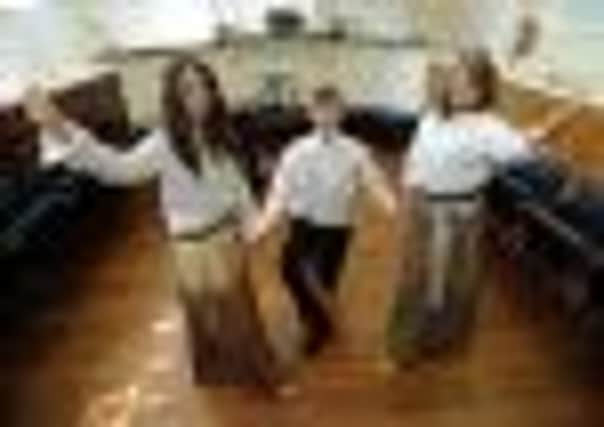Courtoom drama as magistrates happy to be doing time


However, they have this week been taking leading roles in their own courtroom drama in the historic confines of Beverley’s Guildhall.
To celebrate 650 years of the magistracy, JPs who sit on benches in Bridlington, Goole and Beverley, have presented a play – Doing Time – with the help of a dozen Longcroft School students.
Advertisement
Hide AdAdvertisement
Hide AdDivided into 10 cameos, it brought to life the crucial role magistrates have played in the nation’s affairs.


Magistrate Lesley Mole, who wrote the play, said: “The whole history of this country is tied up with the history of the magistracy until we had local authorities and that wasn’t until the late 1800s.
“They did everything, the Poor Law, they were responsible for bridges, law and order, taxation. There was amazing power in the hands of a few people.
“Their powers weren’t taken away until the Reform Act in the 1800s and with the World Wars everything completely changed.”
Advertisement
Hide AdAdvertisement
Hide AdWhen JPs were established 650 years ago they dealt with both civic and criminal matters, and met in Moot Halls, small local town halls or other public buildings.


Petty cases might be heard in a room in an Inn, or in the Justice’s house. Serious cases went to York.
It was not until the mid-19th century that purpose-built police stations with courthouses attached were built.
In Yorkshire, there used to be 100 magistrates courts – now there are just 18.
Advertisement
Hide AdAdvertisement
Hide AdIn the East Riding, the long list of lost courthouses includes Hornsea, Leven, Sproatley, Hedon, Welton, Brough, Howden, Market Weighton, Driffield and Pocklington.


The public performances have now finished. However, an exhibition relating to magistrates – including pictures, artefacts, costumes, information and quotations relating to JPs and society in general over the period – is to run for the rest of the summer.
In addition, St Mary’s Church in Beverley will be open specially tomorrow for tours of its upstairs Priest’s Rooms – as they are not normally open to the public.
On show are the Beverley town stocks and pillory, a scold’s bridle, ecclesiastical items, a bell, church carvings and masonry.
Advertisement
Hide AdAdvertisement
Hide AdMrs Mole, who sits as a family magistrate in Bridlington, added: “At one time magistrates were called upon to do so much, not just having people in front of them in court, but in a lot of other civic roles.
“It was an honour to become a magistrate but on the other hand they didn’t get much financial reward and often ended up less well off.”
Today, about 30,000 magistrates sit throughout the country, dealing with 95 per cent of all crime, with only five per cent of more serious crime going to the Crown Courts.
The decline in the number of courthouses has seen justice becoming less localised. Goole magistrates’ court is due to sit for the final time in December, with a new combined East Yorkshire bench, sitting in Beverley and Bridlington.
Advertisement
Hide AdAdvertisement
Hide Ad“We will fight tooth and nail to keep hold of Beverley and Bridlington,” said Mrs Mole.
“We all feel very much for the people of Goole, who are going to have to travel – the only consolation is that you will get Goole magistrates who will travel to Beverley.
“Magistrates have changed over the years and we will adapt to this change too.”
Raymond Curry, a retired Leeds magistrate of 27 years, the author of the soon-to-be-published Lost Courthouses of Yorkshire, has traced the many changes seen by the magistracy over the years.
Advertisement
Hide AdAdvertisement
Hide AdHe bemoans the fact that soon there will be no courthouse between Hull and Leeds or between York and Bridlington and Beverley.
One significant recent change has been the introduction of “ticket penalties”, cutting the number of petty cases heard by magistrates, which he believes has led to less respect for the law: “So many of the petty cases have been taken away with instant tickets it has become a kind of flash and cash, instead of a chap having to roll up before the magistrates and get a severe reprimand in conjunction with a fine.”
Sponsorship for the production came from the High Sheriffs and Humberside Police Tribune Trust, the Magistrates Association and East Riding Council.
The tours at St Mary’s, which last about 20 minutes, can take as many as 10 visitors at a time. Visitors will also be free to wander around the church.
From July 27 to September 3, the Guildhall will open from 10am to 1pm.